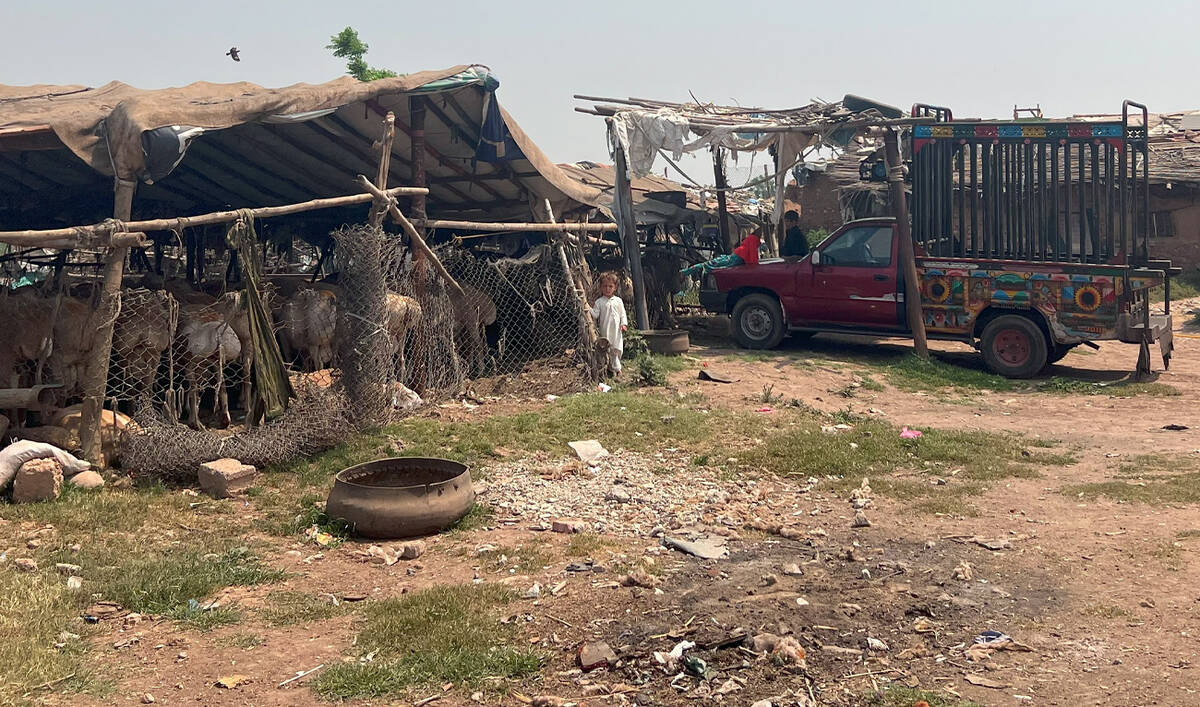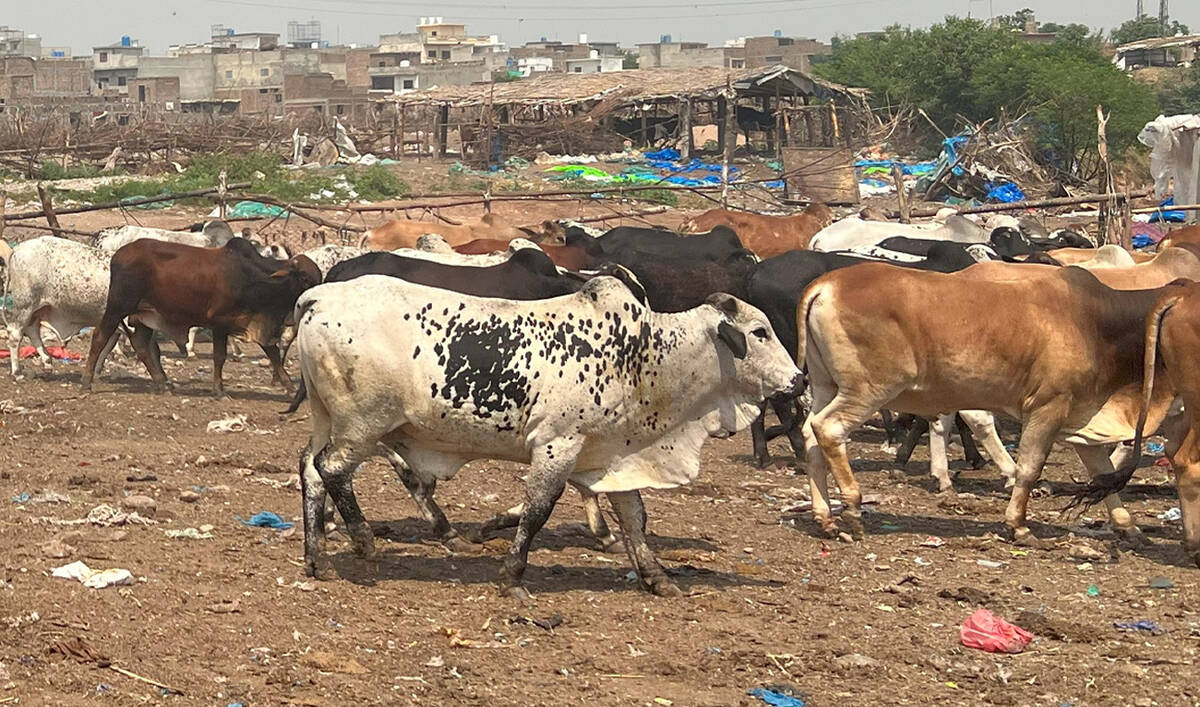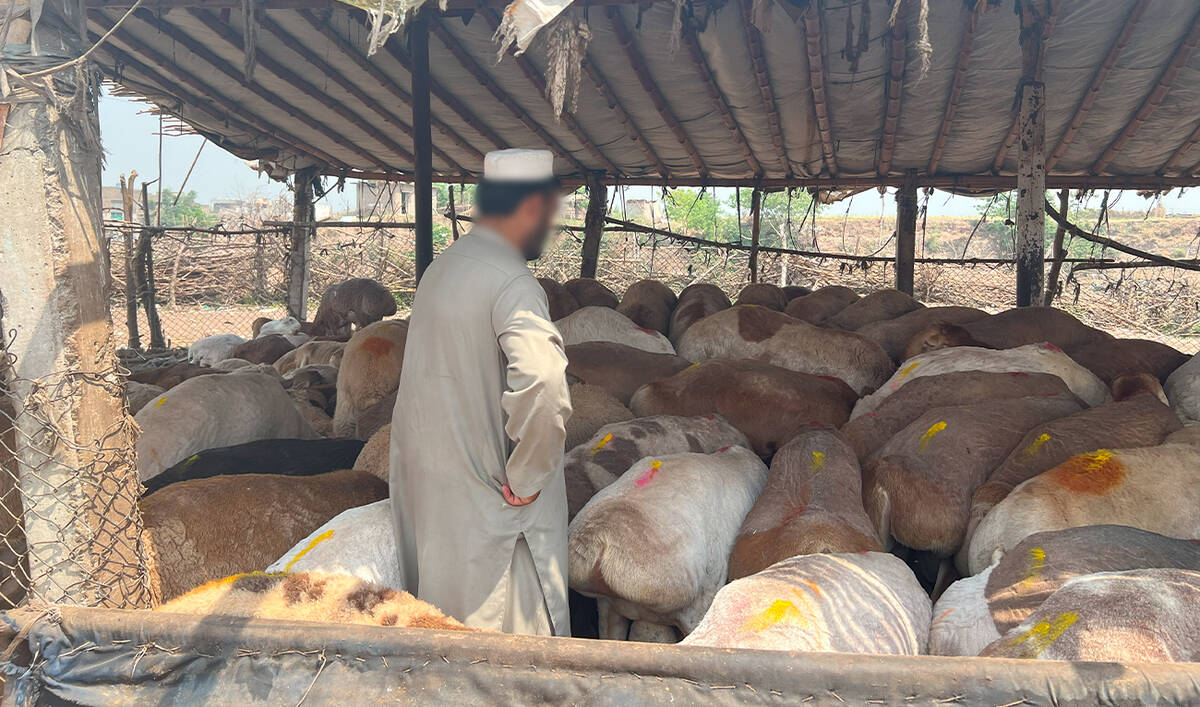ISLAMABAD: As Pakistan grapples with climate woes, a community welfare school in its capital, Islamabad, has been training students to upcycle trash into items like bird feeders, pencil holders, bouquets and ropes in order to manage solid waste in the area, besides imparting formal education.
Solid waste directly contributes to greenhouse gas emissions through the generation of toxic gases from decaying trash in landfills and combustion facilities. Pakistan is among the top 10 countries most affected by climate change, according to experts. Last year, the South Asian country suffered from unprecedented climate-induced floods that killed more than 1,700 Pakistanis, affected 33 million and caused more than $30 million losses.
The country generates approximately 49.6 million tons of solid waste a year, which is increasing more than 2.4 percent annually. The South Asian nation of over 241 million lacks waste management infrastructure like other developing countries, creating serious environmental problems, while most of the municipal waste is either burned, dumped or buried on vacant lots, threatening the health and welfare of people, according to the International Trade Administration (ITA), a US government agency.
The country’s federal capital, Islamabad, generates over 1,535 tons of solid waste daily. With a population of 2.36 million, the city has a capacity of collecting just 650 tons a day, which leaves residents of slums and rural areas with no option but to dump the garbage at open places or burn it.
Sensing the gravity of the situation, the 'Saaf Mohala Saaf Pakistan' (clean neighborhood clean Pakistan) primary school, run by a philanthropist, started training its students in waste management in 2019.
“If I get a plastic bag, tetra pack, papers on the way, I bring them to school and put them in the bins,” Mohammad Awais, an eight-year-old student of class 3, told Arab News last week.
The school is situated in the Mehrabadi village on the outskirts of Islamabad. The slum that is home to more than 15,000 people lacks basic facilities like government-run school, hospital or a waste collection mechanism.
For children’s training, the management has placed three separate bins for plastic, papers and tetra packs within the school premises.
Students from class 1 to 5 bring waste from their homes daily, put them in the bins and later upcycle and recycle them, according to the management. They have collected and recycled over 600 kilograms of trash in the last four years.
“The advantage of the recycling is like these bottles we don’t recycle and use them, we just throw them away, this contributes to plastic pollution and it’s better that we recycle it,” Awais said, explaining the waste segregation process at his school.
Established since 2012, the institution currently has around 250 boys and girls from impoverished families enrolled and imparts them free education.
A few volunteers also train the pupils in upcycling and recycling their daily trash.
“These kids are basically bringing those waste into the school, segregating those waste, and ultimately, you can say, bringing something or just bringing the best out of it,” said Usman Imtiaz Malik, a volunteer at the school.
Malik teaches students different techniques to segregate, recycle and upcycle their daily waste, which they could have otherwise dumped in open fields close to their homes.
“They are making useful materials out of those waste, like… bird feeders, and multiple other useful objects from those waste materials,” he said, teaching students to prepare a skipping rope from used polythene bags.
Amina Rahman, another volunteer, said it was important to teach kids about recycling of waste at a young age, so they could carry it forward in their lives.
“We want them to know that things that we typically think can be thrown away, they don't have to be thrown away, they can be given a new life,” she told Arab News.
Dr Mehr Nigar, an assistant professor at the Air University in Islamabad who also volunteers at the school, said Pakistan lacked infrastructure for solid waste management, and waste collection and segregation as per the international standards.
“Pakistan does not have a single sanitary landfill,” she said. “We have a lack of proper waste collection and management facilities, and even the waste which is being collected, it is not being disposed of in a proper manner.”
Dr Nigar emphasized on the need to include solid waste management in school curriculum to teach students about the importance of upcycling and recycling to maintain a sustainable ecosystem in their neighborhoods.
“If you start teaching the young kids that the recyclable has to go in a recycling bin, in the proper bin, then the kids are going to learn that habit. It's very difficult to unlearn a bad habit. So, what we are doing, our effort, is much broader than simply cleaning up the neighborhoods,” she said.
“We are inculcating the seeds, inculcating the good habits, and we are sowing the seeds of future green businesses. We are raising future green leaders because showing them that waste has value, we are giving them hope.”




















